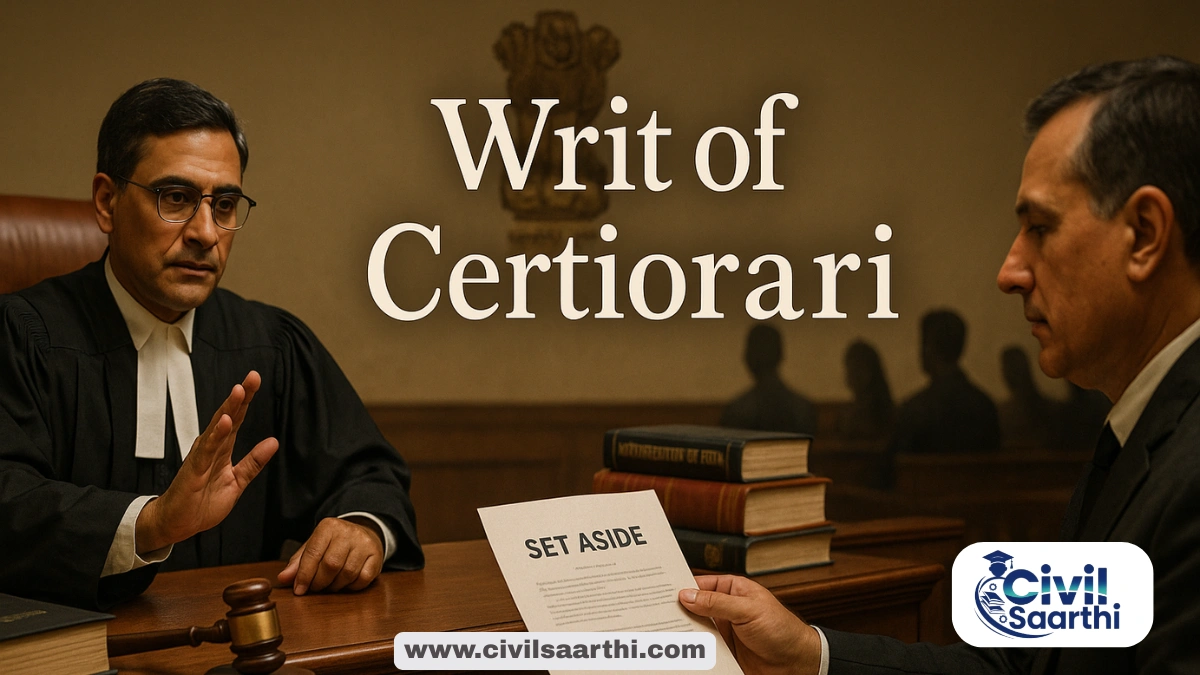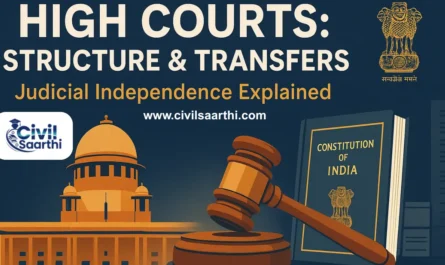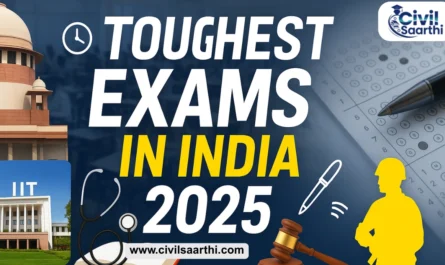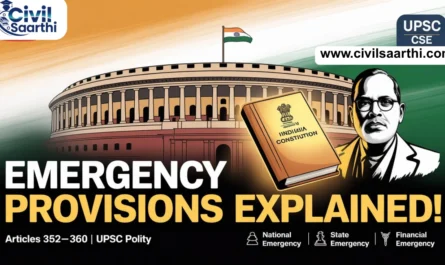The writ of certiorari is one of the five types of writs that can be issued by the Supreme Court and High Courts under Article 32 and Article 226 of the Indian Constitution, respectively. It is a powerful tool for judicial review, allowing higher courts to quash the decisions of lower courts or tribunals.
Writ of Certiorari
Definition: The term ‘certiorari’ is derived from the Latin word meaning “to be informed of.” It is issued to a lower court or tribunal to transfer a case to a higher court for review.
Purpose: The primary purpose of the writ of certiorari is to ensure that the lower courts or tribunals do not exceed their jurisdiction or violate the principles of natural justice. It is used to correct errors of law and to ensure that justice is served.
Scope: The writ can be issued in cases where:
- There is an error apparent on the face of the record.
- The lower court has acted without jurisdiction.
- The decision is against the principles of natural justice.
Article 32 of the Indian Constitution
Right to Constitutional Remedies: Article 32 provides the right to individuals to approach the Supreme Court for the enforcement of their fundamental rights. It is often referred to as the “heart and soul” of the Constitution.
Provision for Writs: Under Article 32, the Supreme Court has the power to issue directions or orders or writs, including the writ of certiorari, for the enforcement of fundamental rights.
Significance: Article 32 acts as a safeguard against the violation of fundamental rights, ensuring that individuals have a direct route to the highest court in the land.
Relationship between Writ of Certiorari and Article 32
The writ of certiorari is a mechanism through which the Supreme Court can exercise its power under Article 32 to review and quash decisions made by lower courts or tribunals that infringe upon fundamental rights.
It serves as a check on the powers of lower courts, ensuring that justice is not only done but is seen to be done.
Previous Year Questions (PYQs) Related to Writ of Certiorari and Article 32
With reference to the writs issued by the Courts in India, consider the following statements: (2022)
- Mandamus will not lie against a private organisation unless it is entrusted with a public duty.
- Mandamus will not lie against a Company even though it may be a Government Company.
- Any public minded person can be a petitioner to move the Court to obtain the writ of Quo Warranto.
Which of the statements given above are correct?
(a) 1 and 2 only (b) 2 and 3 only
(c) 1 and 3 only (d) 1, 2 and 3
Ans c
When the Chief Justice of a High Court acts in an administrative capacity, he is subject to: [1996]
- a) The writ jurisdiction of any of the other judges of the High Court
- b) Special control exercised by the Chief Justice of India
- c) Discretionary powers of the Governor of the state
- d) Special powers provided to the Chief Minister in this regard
Ans a
A Writ of Prohibition is an order issued by the Supreme Court or High Courts to: [2024]
- a) A government officer prohibiting him from taking a particular action.
- b) The Parliament or legislative Assembly to pass a law on Prohibition.
- c) The lower court prohibiting continuation of proceedings in a case.
- d) The Government prohibiting it from following an unconstitutional policy.
Ans c







